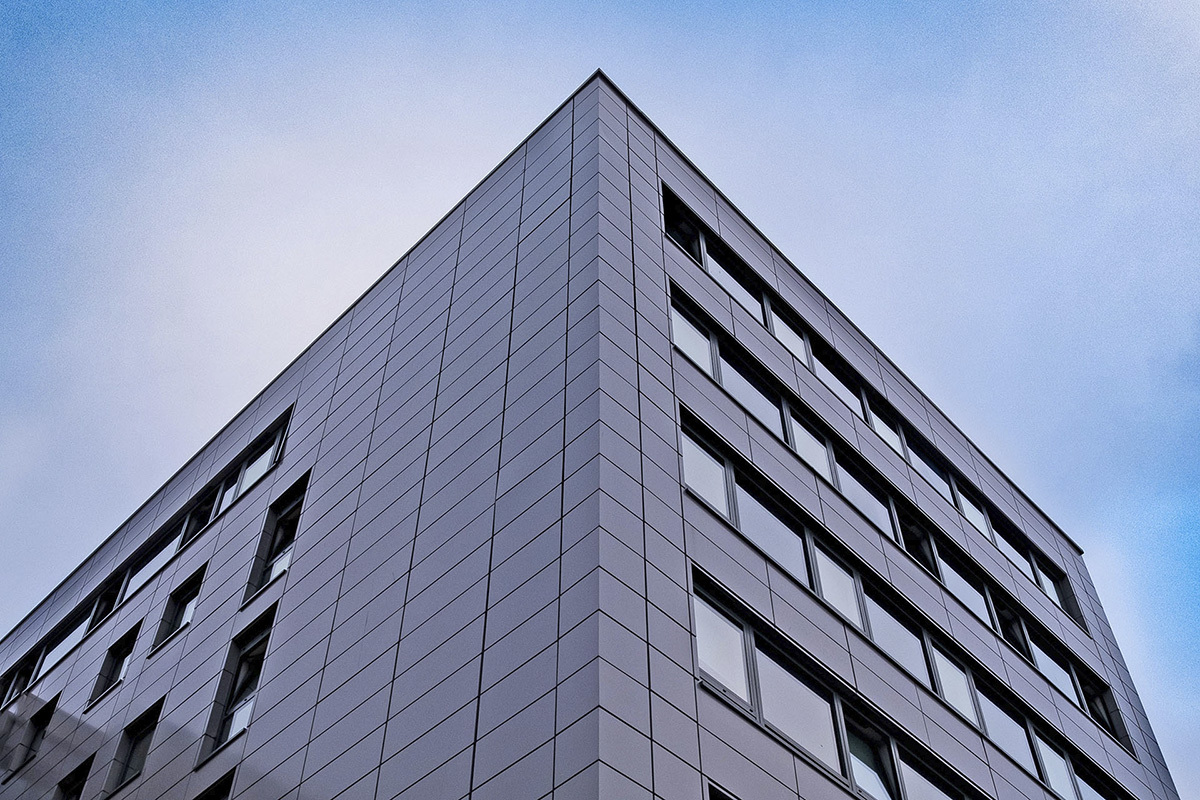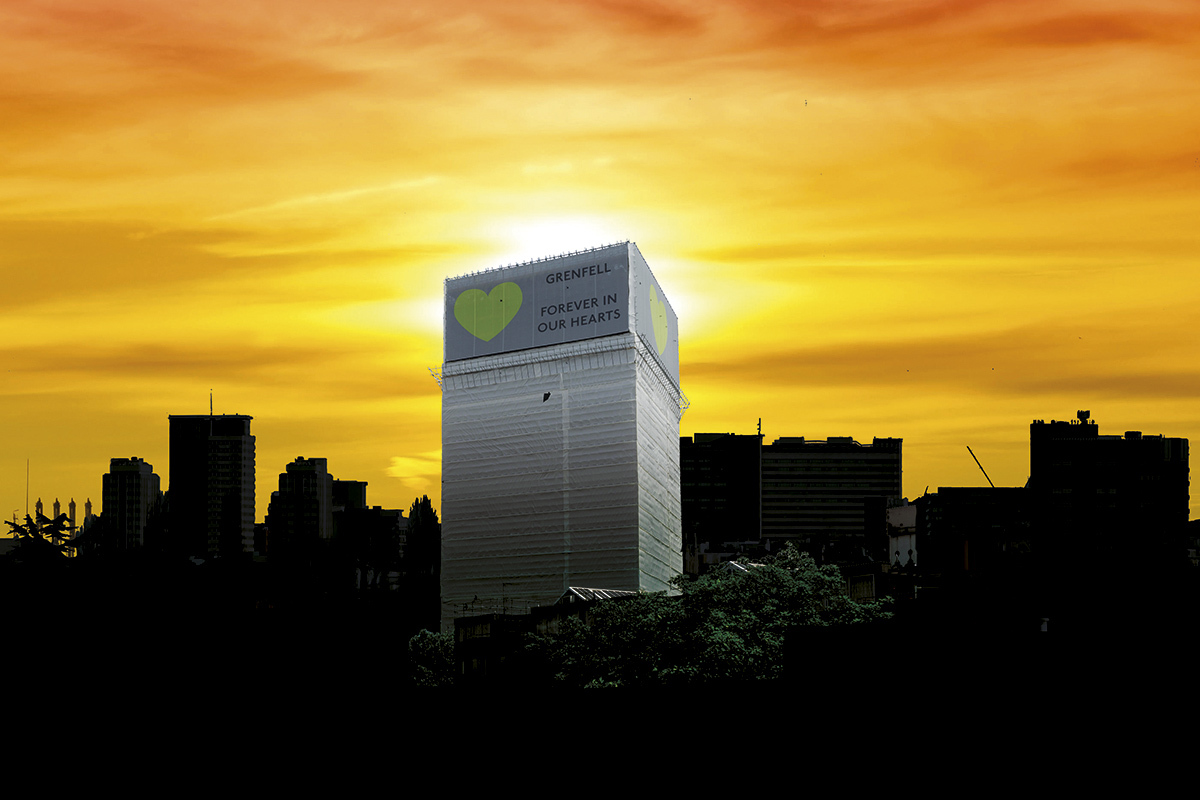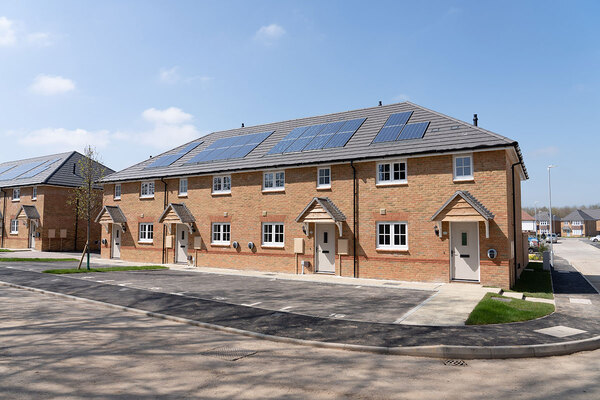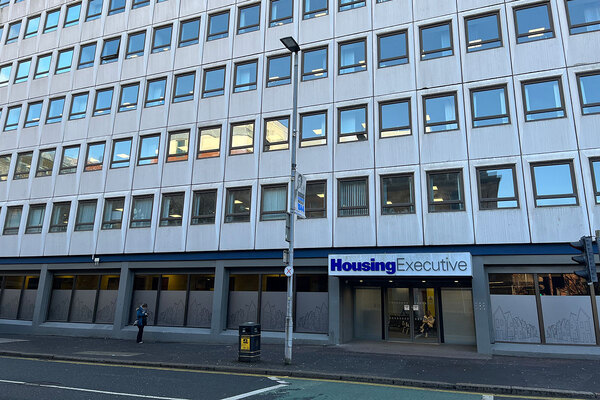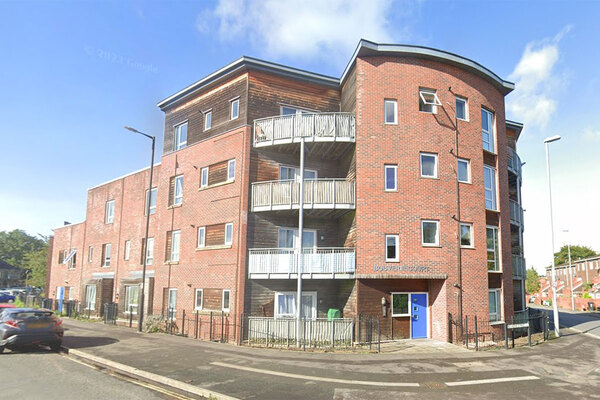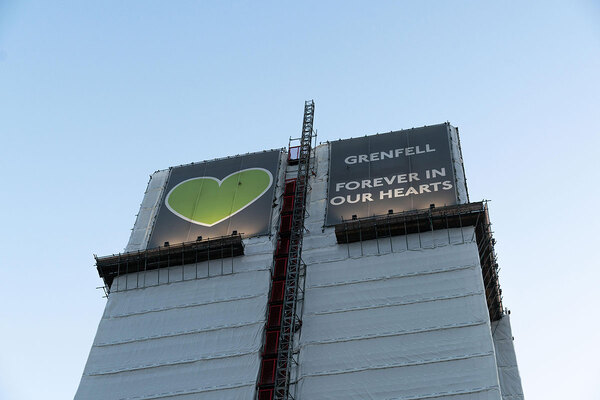Building safety campaigners warn ‘hardly anything has changed’ as they issue fresh demands to government
Resident campaigners in blocks with building safety issues have delivered a new set of asks to the English government as they warn “hardly anything has changed on the ground” a year on from new legislation to protect them from costs.
Last year’s Building Safety Act introduced protections that mean the majority of building safety costs cannot be passed on to most leaseholders. It has since forced 49 large developers to sign contracts taking responsibility for “life safety” defects in homes they built.
But End Our Cladding Scandal campaigners – who started their campaign with the support of Inside Housing in April 2019 before receiving the backing of The Sunday Times in September 2020 – have set out a list of five key areas where more change is needed.
They are warning that the “vast majority of us are still trapped in unsafe homes, still unable to sell, still without any clue when this nightmare will end”.
The campaigners carried out a survey of 774 affected leaseholders, preliminary results from which were shared with Inside Housing in March, in which 36% said the crisis had changed the way they would vote in the next election.
The survey showed that 64% of affected leaseholders had already spent more than £2,500 on costs resulting from the crisis, such as surveys, interim measures, legal fees and insurance, with 11% having spent more than £10,000.
Preliminary data from this survey, previously shared with Inside Housing in April, showed that only 21.8% of leaseholders in dangerous blocks had seen remediation work start and for 44.1%, a date had not even been identified for work to begin.
This means leaseholders are still trapped: 75% cannot remortgage, despite banks stating their willingness to offer mortgages.
One leaseholder told the survey: “The safety issues identified within my block of flats has caused horrendous strain on my finances. I no longer need the flat, but the cladding crisis has meant putting my plans to sell the property on hold for more than a year, deepening my debt problems, causing mental distress to me and my partner, and making my plans to start a family more difficult.”
Another added: “[I] have wasted three years of my life, and lost my chance to adopt a child. The adoption agency told me it was unlikely I would be granted adoption in this flat. I still probably have 18 months till works are done and I can sell, unless something changes.”
“I would never vote Tory after their ineffective handling of this national scandal,” a third added.
The campaign’s demands include a “significantly increase” in the pace of remediation work, with a commitment for a remediation plan to be in place for all buildings by June 2024.
While significant progress has been made in remediating buildings with aluminium composite material (ACM) cladding, with funding first announced for social housing in 2018 and private blocks in 2019, work to remove other materials are moving at a glacial pace.
Currently, 3,487 tall buildings with dangerous cladding other than ACM have been registered for public funding, but work has started on just 263 and it has been completed on only 37.
For medium-rise buildings (up to 8,890 are believed to be affected), a funding programme has not even opened.
Buildings below 11m in height do not qualify for government support and leaseholders have no protection from costs, despite insurers and risk assessors recommending that remediation is necessary for many of these buildings.
In other properties, work is being delayed by cost, a lack of skilled workers such as surveyors, and disputes over who is responsible, with new building safety laws so far only resulting in protracted litigation.
Because leaseholders are deemed ineligible for protection if they own more than three properties, works will also be held up where these small private landlords are unable to find the astronomical sums to cover their share of the costs.
The campaign has five asks (listed below) which include calls for comprehensive standards to risk assess buildings, an increased pace to works and protection for all leaseholders.
Giles Grover, a spokesperson for the End Our Cladding Scandal campaign, said: “Six years after Grenfell, one year after [housing secretary] Michael Gove changed the law and told the public that leaseholders were now protected, hardly anything has changed on the ground.
“The vast majority of us are still trapped in unsafe homes, still unable to sell, still without any clue when this nightmare will end. We’re still going to have to pay to fix issues we didn’t create, and some people who have been horribly labelled as non-qualifying leaseholders still face ruinous bills because the government has decided some leaseholders are more innocent than others.
“Nowhere near enough has been done to hold the companies that caused this mess to account, despite Mr Gove promising this would happen.
“If this government continues to refuse to protect us and ensure buildings are made safe quickly, we will keep fighting until we have one that understands fairness and what ‘doing the right thing’ actually means.”
A spokesperson for the Department for Levelling Up, Housing and Communities said: “This government has taken significant steps to make buildings safe, and to make sure that those responsible pay.
“We are investing more than £5bn to remediate unsafe cladding, and through our developer contract, almost 50 of the country’s largest developers have agreed to fix their own buildings. We continue to pursue wrongdoers and those who fail their leaseholders and tenants.
“We have protected leaseholders through the Building Safety Act and created the new Building Safety Regulator to oversee a culture of higher standards throughout our built environment. We are working with lenders and insurers to make sure leaseholders are treated fairly and to give them the peace of mind they deserve.
“There is more to do, and our work continues – we will work closely with End Our Cladding Scandal to bring this crisis to an end. No one should have to live in an unsafe building.”
End Our Cladding Scandal: new campaign asks
Comprehensive risk assessment standards
Definitive, holistic and risk-based guidance is essential for buildings of all heights and for both external and internal defects, so that safety assessments and the remediation required will be absolutely clear and consistent.
Make our homes safe at the pace we need and deserve
Robust, meaningful oversight of the developer contracts, funding must match risk, all industry stakeholders must be held to account, there must be clear deadlines for remediation, and social landlords must have the same access to government funding as the private sector.
All leaseholders are 100% innocent and must be protected
Every leaseholder must have equal protection from the cost of fixing building safety defects. We are all blameless and must be treated as such.
Leaseholders must be protected from further financial penalties
The government must go beyond the financial losses not covered by the current leaseholder ‘protections’ and ensure that leaseholders are not further penalised by an onerous lending process and exorbitant building insurance premiums.
Urgent action to give us our lives back now
The government must do much more to help us now. The Code of Practice for Works in Residential Buildings must be made binding, leaseholders and residents must be able to obtain accurate information about their homes, and better mental health support must be made available to those affected by this crisis.
Sign up for our fire safety newsletter
Already have an account? Click here to manage your newsletters
